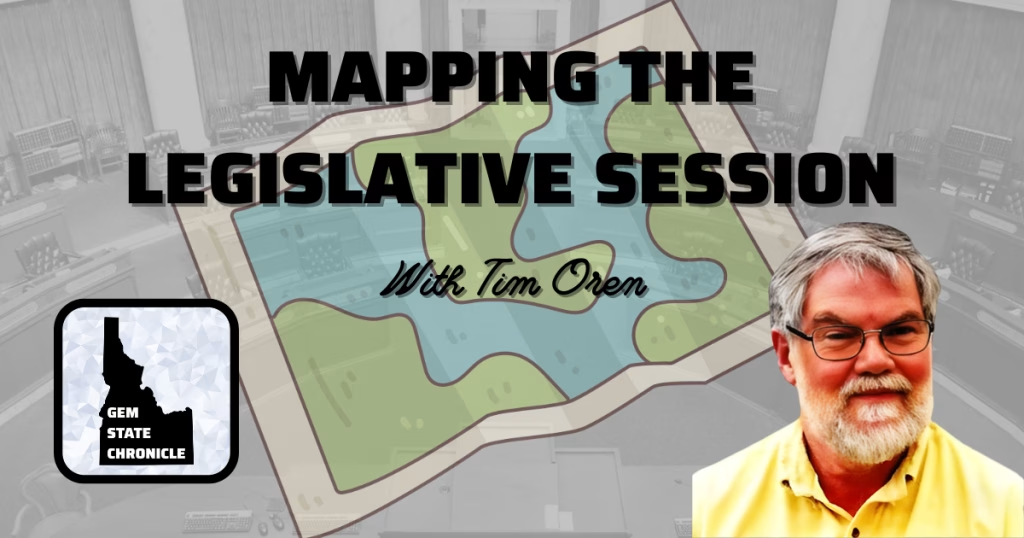“Everything’s computer.” — President Donald J. Trump
George Orwell. The Mark of the Beast. The Great Reset. These are all phrases one hears any time lawmakers discuss adopting some new technology. The debate this week over digital driver’s licenses was no different.
Driver’s licenses have been around nearly as long as automobiles. Karl Benz, inventor of the automobile, had to get a permit from the government to drive his car on city streets. In 1913, New Jersey became the first state to require examination and licensing for automobile drivers. By 1918, every US state mandated license plates for vehicles, with universal driver licensing rolling out in the following decades.
Early driver’s licenses did not have photographs, but the use of license cards to prove age and identity forced all states to begin doing so, with Maryland being the last in the 1980s. Today, driver’s licenses are used as ID cards for such varied uses as boarding airplanes, buying alcohol, and voting.
People are naturally nervous when discussing issues related to identification. Even broaching the subject of a national ID card brings dire warnings of social credit scores and 15 minute smart cities. It’s not unfounded, considering the use of technology to control people that we see in countries such as Communist China.
However, when evaluating an idea, we should do so calmly and soberly. As we consider legislation to allow digital driver’s licenses in Idaho, we should ask three questions:
- Is it doable?
- Is it secure?
- Will it lead to totalitarian tyranny?
Earlier this week, House Bill 78 passed the House by a very narrow vote, with most so-called moderate Republicans joining Democrats in favor while conservatives voted against. The two biggest concerns brought up during debate were a perceived threat to privacy and security as well as a sense that implementing a digital ID would put us on the road to Chinese-style totalitarianism. Watch the whole debate here:
I have gently broken ranks on this one, holding the position that this idea is both inevitable and intriguing. That is, digital driver’s licenses are the future, and so we should start having the conversation now about what this will look like in Idaho.
The Electronic Frontier Foundation (EFF) has some cautions about digital IDs that’s worth reading. However, I am more optimistic about the potential for moving more things into the digital world. Consider what I used my phone for on Thursday morning alone:
- Messaging
- Following bills on the House floor
- Live-tweeting the House floor
- Keeping up to date with appointments on my calendar
- Checking the price of gold
- Reading Substack articles
- Checking weather conditions
- Taking and editing pictures
- Paying for parking via an app
- Paying for lunch via Apple Wallet
I trust that all of these things are secure. I remember when contactless payments debuted, many were concerned about privacy and security. Some even refused to use the technology, preferring to swipe a credit card instead. However, contactless payments via chip or smartphone are actually more secure than swiping a card.
I trust that the messages I send are secure and encrypted. I trust that my 2-factor authentication app will keep my accounts secure. I trust that nobody can unlock my phone should it ever leave my possession.
I put a lot of trust into this little piece of electronics. If I were to lose my phone, that would be unfortunate — it’s an expensive device. However, I would feel secure in that it would be highly unlikely for a thief to break into it and steal my personal information. Compare that to losing my wallet, in which my credit cards and driver’s license would be out there for anyone to take and abuse.
That actually happened to me once. Many years ago, I spent three weeks backpacking through Spain, Portugal, and Morocco, and kept my wallet and passport safe through all sorts of interesting adventures. However, while I was on the train to the airport for my journey home, my wallet was picked by a thief, and before I knew what had happened someone had already rung up hundreds of dollars worth of purchases on my debit card.
I think a digital driver’s license is doable, and can be secure if properly implemented. H78 would have the state create a custom app rather than using the built-in wallet in Apple and Android phones. I’m not convinced this is the right idea — we’re usually better off not reinventing the wheel — but Rep. Stephanie Mickelsen, the bill’s sponsor, says she was convinced to go this route after talking to representatives from other states that have already implemented digital licenses.
According to H78, drivers who are stopped by police would not even have to hand their phones to the officer; rather they would transmit the information wirelessly to the officer’s device. That means your phone never leaves your hand, which answers some concerns from the EFF article above.
The other question, will digital driver’s licenses help bring about Chinese-style totalitarianism, is tougher to answer. Nobody knows what will happen, yet there are many who believe that unless we stop this bill, it will. Erin Barnard of the Kootenai County Spectator shared her concerns on social media this week:
Will allowing drivers to keep their licenses in an app lead us to the brave new world? I can’t say. If so, I think we crossed that bridge a long time ago. Our information is already in a government database; the physical card is in some ways merely a key to that existing information. When I rode along with an Ada County Sheriff’s deputy last year, I watched him use his computer to look up driver information before he ever stepped out of the vehicle during traffic stops. The information was there, all it took was the license plate number.
The migration of information from paper to digital has been going on for decades, and continued evolution is inevitable. Each generation is concerned that the latest technological advancement, from the printing press to the smartphone, will be the nail in humanity’s coffin. Maybe they were right, maybe each iteration takes us further away from our human nature. Nevertheless, progress marches on.
I think this bill is an intriguing way to start the conversation here in Idaho. Citizens who volunteer to have digital licenses will be able to beta test this program, and we’ll see in real time how well it works (or doesn’t).
Concerns about security and tyranny are absolutely warranted, and I trust that if our state or federal governments even consider laws to allow further control of citizens then they will rightly be met with torches and pitchforks. The price of liberty is eternal vigilance.
Gem State Chronicle is a reader-supported publication. To receive new posts and support my work, consider becoming a free or paid subscriber.
About Brian Almon
Brian Almon is the Editor of the Gem State Chronicle. He also serves as Chairman of the District 14 Republican Party and is a trustee of the Eagle Public Library Board. He lives with his wife and five children in Eagle.













